Purpose
The present conference ICORDS 2025 provides a platform for leading Mathematicians and Statisticians around the globe, working in the area of Operations Research (OR), Management Science, Data Science, and Analytics, to get together in the physical space, discuss several research issues, and to introduce new innovations. The main goal of the conference is to bring experts, young researchers, industrialists, and students together to present recent developments in the dynamic and important fields such as optimization, scheduling paradigms, supply chain management intricacies, risk analysis frameworks, and decision-making methodologies under uncertain conditions. The conference also aims to stimulate research and support the interaction among the scientists by creating an environment for the participants to exchange ideas and to initiate collaborations and professional partnerships.
On behalf of the Scientific Advisory Committee and the Local Organizing Committee, we have much pleasure in extending a cordial invitation to participate in this conference.
The sessions of the conference include plenary and invited talks from eminent speakers. Besides these sessions, organizers invite the participants to present their research work in the sessions of contributory talks.
Dedication
Tirukkannamangai Echambadi Srinivasa Raghavan, one of the leading game theorists of our time, was born on August 05, 1940. He holds the degree of M.Sc. in Statistics (Presidency College, Madras University) and received his Ph.D. in Mathematics and Statistics from ISI Calcutta in 1968 under the guidance of legendary statistician Prof. Calyampudi Radhakrishna Rao. Prof. Raghavan’s interests are Game theory; linear, non-linear programming; matrix theory; applied statistics; operations research. Prof. Raghavan has made many fundamental contributions to the field of game theory and equilibrium computations. He is well known for his contributions to game theory, decision science, and special matrices, and particularly to the topics on stochastic games and cooperative games. He has published more than 60 research papers, written 4 monographs, and guided 14 students.
Being an ardent fan of Carnatic music, he has been organizing Chicago Tyagaraja Utsavam every year in Chicago. Following the ancient Indian educational system, he has been running a Gurukulam in Game theory in his native Pulavanur, Tamil Nadu. In 2021, 2023, and 2024 the Gurukulam was organized by CARAMS, MAHE, Manipal.
He is currently with the University of Illinois, Chicago, and has held many visiting positions. CARAMS, MAHE is pleased to dedicate ICORDS 2025 to him on the occasion of his 85th birthday.
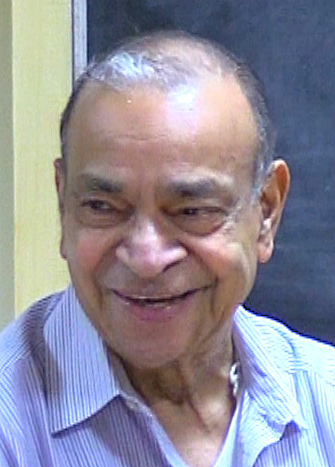
The theme of the conference shall focus on but not be limited to
- Artificial Intelligence and Machine Learning
- Big Data, Business Analytics
- Linear and nonlinear Programming
- Mathematical Programming, Simulation, and Queuing
- Game Theory and their Applications
- Graph Theory and Network Optimization
- Logistic and Supply Chain Management
- Network Medicine
- Planning and Project Management
- Transportation, Scheduling, and Project Management
- Discrete and Combinatorial Optimization
- Multiple-Criteria Decision Making
- Stochastic and Robust Optimization
- Financial Modelling and Risk Management
- Health Care and Outbreak Management
Publications
Selected articles will get an opportunity of possible publication in special issues of the following journals.
The aim of these special issues is to explore both theoretical and algorithmic advances in the field of computational operations research and algorithmic game theory. Furthermore, these special issues will focus on game theoretical applications of Operations Research.
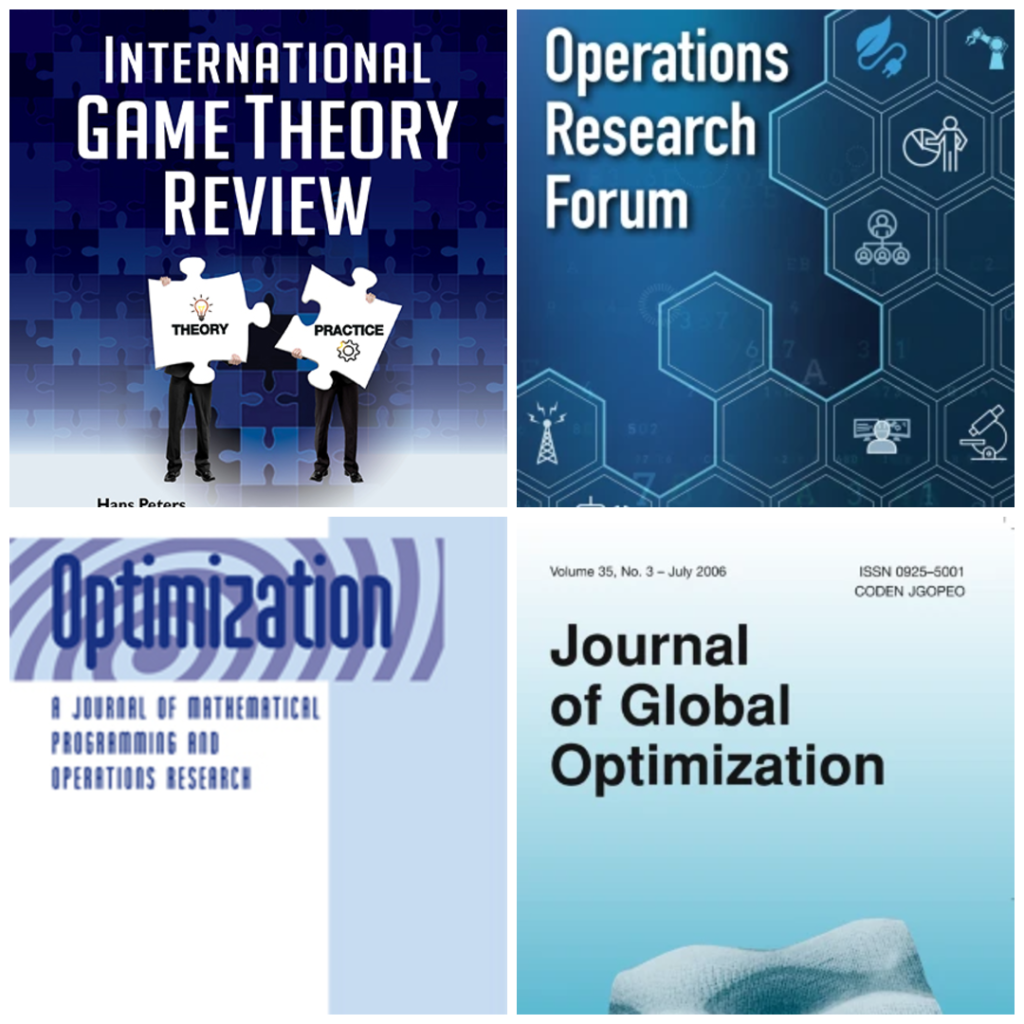
Book chapters/expository articles are invited for the book-volume ‘Applied Operations Research, Game theory, and Decision Science’ which is intended to be published in some reputed series of SPRINGER.
Springer Nature books excel research and learning for students, researchers and professionals worldwide. Springer Nature’s books and eBooks deliver access to the most complete collection of scientific, technical, medical, business, humanities and social sciences publications available today. Thousands of new reference works, monographs, briefs, proceedings, textbooks, and series are published every year.
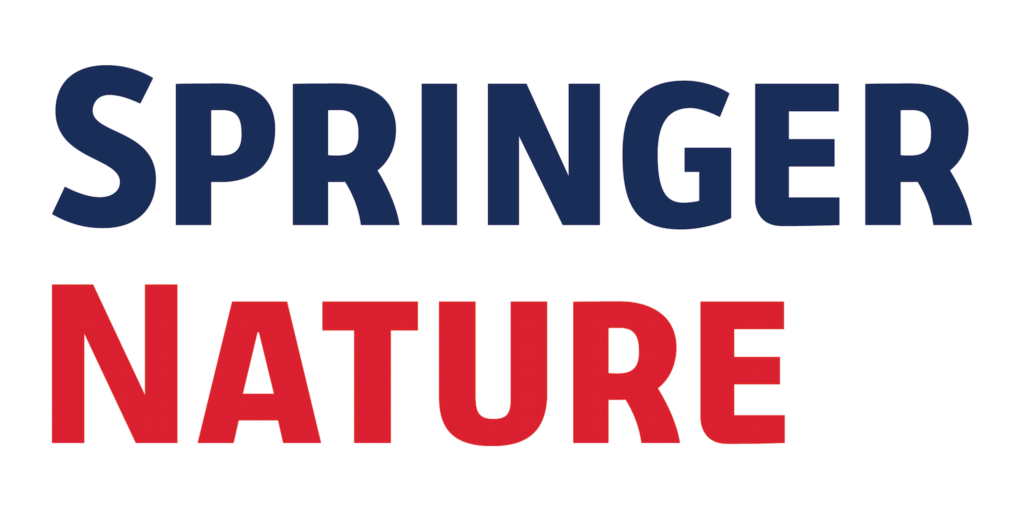
Authors are encouraged to submit papers that contribute to the advancement of knowledge in the field and offer practical insights for policymakers, industry professionals, and researchers. All submissions will undergo a rigorous peer-review process to ensure the highest quality of published articles.
Papers by nonparticipants are also welcome for submitting the articles which are in the focus of the conference. Due to the limitation of the number of articles in the special issue, qualified articles presented at the conference are considered with priority. For more details such as submission guidelines and deadlines, please click on the ‘Publication’ tab above.
Best Paper Award
Full research articles on any of the following themes are invited from the researchers (presenting authors) for presentation in the Best paper award competition.
Eligibility: Any researcher with age less than 35 years (DOB on/after June 05, 1990). Full research articles (need not be original) on any of the above-mentioned themes are invited from the researchers (presenting authors) belonging to this age group.
The presenting authors are required to submit No Objection Certificate from the coauthors, along with the paper. Format for No Objection Certificate can be downloaded here: Click here.
All original papers selected for contributory sessions as well as for Best Paper Awards competition are eligible for the further review process in the appropriate conference publications. Authors may opt not to publish the presented paper in the special issue dedicated to ICORDS 2025.
Note: One may submit an extended abstract of a paper instead of full paper for the possible consideration for presentation in Best Paper Award contest. However, full paper should be submitted before the presentation.
How to submit: Please send the articles before the deadline to icords2025@gmail.com with a Cc to kmprasad63@gmail.com with the subject line ‘Article for BP Award – ICORDS 2025’. For any future query related to the submitted manuscript, use the manuscript ID in the subject line.
Template for submitting abstract for Best Paper Award: Click here.
Template for submitting article for Best Paper Award: Click here.
Last date for submission of extended abstract: April 15, 2025.
Important Dates
- Last date for early bird registration: March 31, 2025
- Last date for abstract submission: May 25, 2025 (For presentation)
Media Partners
Patrons
Dr. M. Ramdas Pai
Manipal Academy of Higher Education, Manipal, India
Dr. Ranjan Pai
Manipal Academy of Higher Education, Manipal, India
Dr. H. S. Ballal
Manipal Academy of Higher Education, Manipal, India
Dr. Sharath Rao
Manipal Academy of Higher Education, Manipal, India
Dr. Narayana Sabhahit
Manipal Academy of Higher Education, Manipal, India
Dr. (Cdr) Anil Rana
Manipal Institute of Technology, MAHE, Manipal, India
Dr. Cherian Verghese
Prasanna School of Public Health, Manipal Academy of Higher Education, Manipal
Lt. Gen. (Dr.) M. D. Venkatesh
Manipal Academy of Higher Education, Manipal, India
Advisory Committee
Dr. Tiru Arthanari
University of Auckland, New Zealand
R Chandrashekaran
The University of Texas at Dallas
Raghunath Rudran
T A Pai Management Institute, Manipal
Anjan Raychaudhuri
Sikkim Manipal Institute of Technology, Sikkim, India
Dr. Dominik Slezak
Institute of Informatics, University of Warsaw, Poland
Agnieszka Wiszniewska-Matyszkiel
University of Warsaw, Poland
Dr. Narayana Sabhahit
Manipal Academy of Higher Education, Manipal, India
Ram Kumar P N
Indian Institute of Management Kozhikode
Saptarshi Mukherjee
Indian Institute of Technology, Delhi
Juan Enrique Martinez-Legas
Universitat AutÚnoma de Barcelona
R. B. Bapat
Indian Statistical Institute, Delhi Centre & MAHE, Manipal, India
T. E. S. Raghavan
University of Illinois at Chicago, USA
Scientific Advisory Committee
Samir K. Neogy (Chairman)
Indian Statistical Institute, Delhi Centre, India
Manjunatha Prasad Karantha (Convenor)
Manipal Academy of Higher Education, Manipal, India
Simo Puntanen
Tampere University, Finland
T. E. S. Raghavan
University of Illinois at Chicago, USA
Local Organizing Committee
Varun Kumar S G (Organising Secretary)
Prasanna School of Public Health, Manipal Academy of Higher Education, Manipal
Harikrishnan P. K. (Co-organising Secretary)
Manipal Institute of Technology, MAHE, Manipal
Manjunatha Prasad Karantha (Convenor)
Manipal Academy of Higher Education, Manipal, India
Asha Kamath
Manipal Academy of Higher Education, Manipal
Kuncham Syam Prasad
Manipal Institute of Technology, MAHE, Manipal, India
Dr. Satyanarayana
Manipal Academy of Higher Education, Manipal
Vasanth Kamath VP
T A Pai Management Institute, Manipal
Special issues dedicated to ICORDS 2025 (as well as ICORAGT 2025) are planned in the following four international journals.
- Operations Research Forum (Title: Recent Trends in Operations Research and Game Theoretic Approach in Decision Science – in honor of Prof. T E S Raghavan)
- International Game Theory Review (Title: Special Issue on Computational Operations Research and Algorithmic Game Theory in honor of Prof. T. Parthasarathy)
- Journal of Global Optimization (Title: Optimization and Game Theory Models: Theory, Algorithms, and Applications in honor of Prof. T E S Raghavan)
- Optimization (Title: Optimization models: Theory, Algorithms, and Applications (ICORAGT2025), Dedicated to the International Conference on Computational Operations Research and Algorithmic Game Theory)
Research articles with novelty presented at the conference shall qualify for the possible publication in any of the above publications, if the article is within the scope of the conference as well as the journal and clears the standard peer review process adopted by the journal. Review articles with contents useful for future research and open problems are also welcome. Papers by non-participants are also considered which are in the focus of the conference and the journal.
IMPORTANT NOTE: The above journals are focusing on different aspects of Operations Research. Authors are instructed to seek the advice of Prof. S K Neogy for choosing an appropriate special issue for the possible publication by sending the abstract of the paper/full paper to skn@isid.ac.in.
Operations Research Forum
Title of the special issue: Recent Trends in Operations Research and Game Theoretic Approach in Decision Science – in honor of Prof. T E S Raghavan
Published by Springer Nature
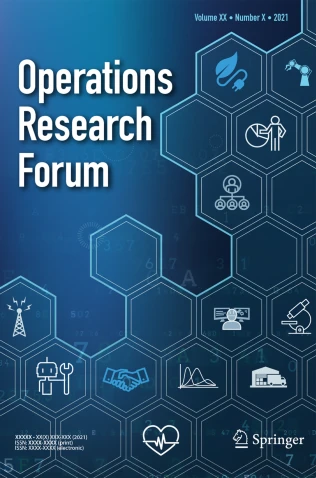
Guest Editors
- Samir K Neogy, Indian Statistical Institute Delhi Center, India (Lead Guest Editor)
- Manjunatha Prasad Karantha, CARAMS, MAHE, Manipal, India (Convener)
- Lina Mallozzi, University of Naples Federico II
- Varun Kumar S G, Manipal Academy of Higher Education, Manipal, India
- Simo Puntanen, Tampere University, Finland
Article types – Original, research, reviews, and short communications with a high standard of literature review and open problems and with the subject matter in line with the focus area of ICORDS 2025/ICORAGT 2025 and the journal.
For submission guidelines, please visit Submission guidelines.
How to submit? – Please follow the hyperlink “Submit manuscript” (https://submission.nature.com/new-submission/43069/3) given in the journal website and upload all your manuscript files following the instructions given on the screen. During submission, select the special issue ‘Recent Trends in Operations Research and Game Theoretic Approach in Decision Science – in honor of Prof. T E S Raghavan’ as the collection. For any inquiries or further information, please contact the Lead Guest Editor Professor S. K. Neogy at skn@isid.ac.in.
For template– Click here.
Timelines – Submission of articles (early submission is recommended, referee process starts as the paper is received): July 31, 2026
Preliminary screening and communication to author: Within a month of submission
Completion of review and decision on acceptance: January 31, 2027
Online publication: Once the article is accepted by the reviewers
Tentative date of publication (subject to the decision of the journal): June 2027.
International Game Theory Review
Title of the special issue: Special Issue on Computational Operations Research and Algorithmic Game Theory in honor of Prof. T. Parthasarathy
Published by the World Scientific

Guest Editors
- Samir K Neogy, Indian Statistical Institute Delhi Center, India (Lead Guest Editor)
- Ravindra B Bapat, Indian Statistical Institute Delhi Center, India (Member)
- Manjunatha Prasad Karantha, CARAMS, MAHE, Manipal, India (Convener)
Article types – Original, research, reviews, and short communications with a high standard of literature review and open problems and with the subject matter in line with the focus area of ICORDS 2025/ICORAGT 2025 and the journal.
For submission guidelines, please visit Submission guidelines.
How to submit? – Manuscripts should be submitted electronically through the IGTR online submission system: To submit the articles, click here. Select ‘Special issue article’ as the article type and later choose ‘SI-SI: Computational Operations Research and Algorithmic Game Theory in honor of Prof. T. Parthasarathy’ as the Section/Category related to your manuscript and then follow the standard steps of EMS for submitting the article. For any inquiries or further information, please contact the Lead Guest Editor Professor S. K. Neogy at skn@isid.ac.in.
For template– Click here.
Timelines – Submission of articles: January 31, 2026
Preliminary screening and communication to author: Within a month of submission
Completion of review and decision on acceptance: June 28, 2026
Online publication: Once the article is accepted by the reviewers
Tentative date of publication (subject to the decision of the journal): September 2026.
Journal of Global Optimization
Published by Springer Nature
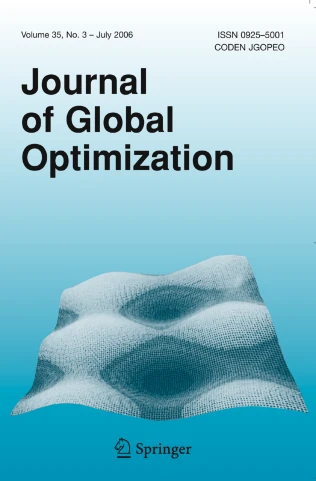
Guest Editors
- Samir K Neogy, Indian Statistical Institute Delhi Center, India (Lead Guest Editor)
- Manjunatha Prasad Karantha, CARAMS, MAHE, Manipal, India (Convener)
- Lina Mallozzi, University of Naples Federico II
- Harikrishnan P K, Manipal Institute of Technology, MAHE, Manipal, India
- Simo Puntanen, Tampere University, Finland
Article types – Original, research, reviews, and short communications with a high standard of literature review and open problems and with the subject matter in line with the focus area of ICORDS 2025/ICORAGT 2025 and the journal.
For submission guidelines, please visit Submission guidelines.
How to submit? – Authors are requested to submit their high-quality research paper to the Journal of Global Optimization by online via Editorial Manager (www.editorialmanager.com/jogo) System by deadline. In preparing the manuscript, authors are requested to follow the guidelines given in the ‘Instructions for Authors’ of the Journal of Global Optimization. While submitting the article through the Editorial Manager, please select ‘Special issue article’ as the article type. For more details about submission, you may see the video given in the link: https://youtu.be/k1aZ-98Plnc. For any inquiries or further information, please contact the Lead Guest Editor Professor S. K. Neogy at skn@isid.ac.in.
For template– Click here.
Timelines – Submission of articles (early submission is recommended, referee process starts as the paper is received): July 31, 2026
Preliminary screening and communication to author: Within a month of submission
Completion of review and decision on acceptance: January 31, 2027
Online publication: Once the article is accepted by the reviewers
Tentative date of publication (subject to the decision of the journal): June 2027.
Optimization
Title of the special issue: Optimization models: Theory, Algorithms, and Applications (ICORAGT2025), Dedicated to the International Conference on Computational Operations Research and Algorithmic Game Theory
Published by Taylor & Francis Group

Guest Editors
- Samir K Neogy, Indian Statistical Institute Delhi Center, India (Lead Guest Editor)
- Manjunatha Prasad Karantha, CARAMS, MAHE, Manipal, India (Convener)
- Juan Enrique Martinez-Legaz, Universitat Autònoma de Barcelona, Spain
- Simo Puntanen, Tampere University, Finland
Article types – Original, research, reviews, and short communications with a high standard of literature review and open problems and with the subject matter in line with the focus area of ICORDS 2025/ICORAGT 2025 and the journal.
For submission guidelines, please visit Submission guidelines.
How to submit? – Please follow the hyperlink “Submit manuscript” (https://rp.tandfonline.com/submission/create?journalCode=GOPT) given in the journal website and upload all your manuscript files following the instructions given on the screen. When submitting their manuscript, authors must answer the question ‘Is the manuscript a candidate for a special issue?’ Please tick ‘yes’ and select ‘ICORAGT2025’ from the list. Also, mark the relevance of your submission to the special issue in your cover letter. For any inquiries or further information, please contact the Lead Guest Editor Professor S. K. Neogy at skn@isid.ac.in.
For template– Click here.
Timelines – Submission of articles (early submission is recommended, referee process starts as the paper is received): March 31, 2026
Preliminary screening and communication to author: Within a month of submission
Completion of review and decision on acceptance: January 31, 2027
Online publication: Once the article is accepted by the reviewers
Tentative date of publication (subject to the decision of the journal): July 2027.
Applied Operations Research, Game theory, and Decision Science
A book volume intended to be published in a reputed series of SPRINGER

Book chapters/expository articles are invited for the book-volume ‘Applied Operations Research, Game theory, and Decision Science’ which is intended to be published in some reputed series of SPRINGER.
Springer Nature books excel research and learning for students, researchers and professionals worldwide. Springer Nature’s books and eBooks deliver access to the most complete collection of scientific, technical, medical, business, humanities and social sciences publications available today. Thousands of new reference works, monographs, briefs, proceedings, textbooks, and series are published every year.
Deadlines
-
- For early bird registration: March 31, 2025
- Abstract submission: May 25, 2025 (For presentation)
Timeline for the submission of the paper for journal publication: Please visit the Publication section.
Registration Fee
| Category | Registration Fee | |
|---|---|---|
| Before March 31, 2025 | After March 31, 2025 | |
| Foreign Delegates (FD) | 300 $/ 275 € | 350 $/ 325 € |
| Foreign Accompanying | 100 $/ 90 € | 100 $/ 90 € |
| Industrial Participants | 7000 INR + GST | 8000 INR + GST |
| Indian Scholar/Faculty (ISF) | 5000 INR + GST | 6000 INR + GST |
| ISF Accompanying | 1500 INR + GST | 1500 INR + GST |
| Indian Students * | 3000 INR + GST * | 4000 INR + GST * |
The registration fee covers accommodation at the Hostel/International Guest House, MAHE, a registration kit, the working lunch, and a welcome dinner on June 5th. Please note that registration fee is not refundable in any circumstance.
*: Indian students or research scholars who do not have any financial support such as fellowship/salary. (Participants registering under this category must produce a letter of recommendation from their supervisor/HOD stating that the candidate has no fund support from any funding agencies. Kindly mail the recommendation letters to carams@manipal.edu or km.prasad@manipal.edu.). The registration fee excludes accommodation charges, which are to be paid as per the norm.
Invited speakers are eligible for a registration fee waiver for the events to which he/she is invited
Participants should use separate email id for an accompanying person while making the payment
After successful registration, INDIAN PARTICIPANTS may pay the registration fee via the payment link (For the payment link visit My Page -> Event registered -> Select the event -> Payment).
After successful registration, FOREIGN PARTICIPANTS are required to mail their name and permanent address to icords2025@gmail.com to get the necessary invoice, against which one may pay the registration fee through bank transfer. Immediately after the payment, kindly send the transaction details to complete the registration procedure.
Accommodation from the organizer will be arranged, depending on the availability, for the duration starting from the evening before the event and up to the morning after the event.
CARAMS aims at supporting the travel and registration of senior and young scientists who do not have the fund support to present the paper, on the request made before May 15, 2025. However, such support (which
could be partial) will be provided depending on the fund support received from the different organizations.



Schedule
Research Interests:
Operations Research, Combinatorial Optimization, Operations Management, Supply Chain Management, System Dynamics, Quantitative Methods Read more
Achievements:
Tiru was awarded International Anassilaos Award, Renato Calapso Prize for mathematics, instituted in honor of the twentieth-century Italian… Read more
Research Interests:
Combinatorial Matrix Theory; Spectral Graph Theory Read more
Achievements:
Read more
Research Interests:
Game Theory, Mechanism Design, Optimization, Mathematical Economics, Machine Learning Read more
Achievements:
Read more
Research Interests:
Linear Complementarity Problem and its Applications in Economics and Finance, Stochastic Games, and Matrix analysis with Application in… Read more
Achievements:
Read more
Research Interests:
Linear Complementarity Problem and its Applications in Economics and Finance, Stochastic Games, and Matrix analysis with Application in… Read more
Achievements:
Applied mathematics, CARM research group, Mathematical biology, Operations research, Statistics, probability and data science Read more
Research Interests:
Operations Research Methodologies Like Machine Learning including Reinforcement Learning and Neural Networks, Markov Decision Models, Queueing Models, Game… Read more
Achievements:
Read more
Research Interests:
Economics : micro, resource & environmental, industrial organization, general equilibrium theory, development economics. Game theory : stochastic games,… Read more
Achievements:
Read more
Research Interests:
Game Theory, Social Networks, Algorithms, Applications of Game Theory to the above areas and to Business Ethics. Read more
Achievements:
Nagarajan has a Ph.D. in Computer Science from the Chennai Mathematical Institute (CMI). During his Ph.D., he also… Read more
Research Interests:
Mathematical Economics Read more
Achievements:
Juan Enrique Martínez Legaz is a professor at Universitat Autònoma de Barcelona. He received his PhD from the… Read more
Research Interests:
Applied Statistics, Linear Programming, Nonlinear Programming, Non-cooperative games, Stochastic games, Statistical Quality Control, Six Sigma, Quality Management. Read more
Achievements:
Based on his research and teaching interests, in applied statistics and matrix methods, he has published several research… Read more
Research Interests:
Fairness in Machine Learning, Game Theory, Mechanism Design Read more
Achievements:
Read more
Research Interests:
Operations Research – Fuzzy Optimization Techniques, Fuzzy Algebra, Soft Computing, Fuzzy Mathematics, Probability and Statistics Read more
Achievements:
Read more
Research Interests:
Game theory, Linear and non-linear programming, matrix theory, applied statistics, operations research Read more
Achievements:
Being a dynamic emeritus professor at the University of Illinois at Chicago has published more than 60 remarkable… Read more
Research Interests:
Multivariate Analysis, Probability and Statistics, Regression Analysis, Mathematical Statistics and its applications Read more
Achievements:
He received a PhD from Stockholm University (1986). He was adviser for 18 undergraduate (master) theses in Mathematical… Read more
Research Interests:
PETRI NETS, GRAPH THEORY, OPERATIONAL RESEARCH, ANALYTICAL HIERACHYCAL PROCESS Read more
Achievements:
Read more
Research Interests:
Infinite Linear Programming, Generalized Inverses of Operators over Hilbert Spaces, Nonnegative Generalized Inverses, Generalizations of Matrix Monotonicity, Linear… Read more
Achievements:
K. C. Sivakumar is a Professor at Department of Mathematics, Indian Institute of Technology Madras. He obtained his… Read more
Research Interests:
Artificial Intelligence, Multi-agent Systems, Knowledge Discovery in Databases, Rough Sets, Information Granulation Read more
Achievements:
Dominik received M.Sc. degree in Mathematics (1996) and Ph.D. degree in Computer Science (2002) from University of Warsaw.… Read more
Research Interests:
Cooperative game theory – games under externalities, risk, fairness and stability-based solution concepts. Competitive and cooperative strategies in… Read more
Achievements:
Read more
List of Participants
Contact us at
carams.mahe@gmail.com

























